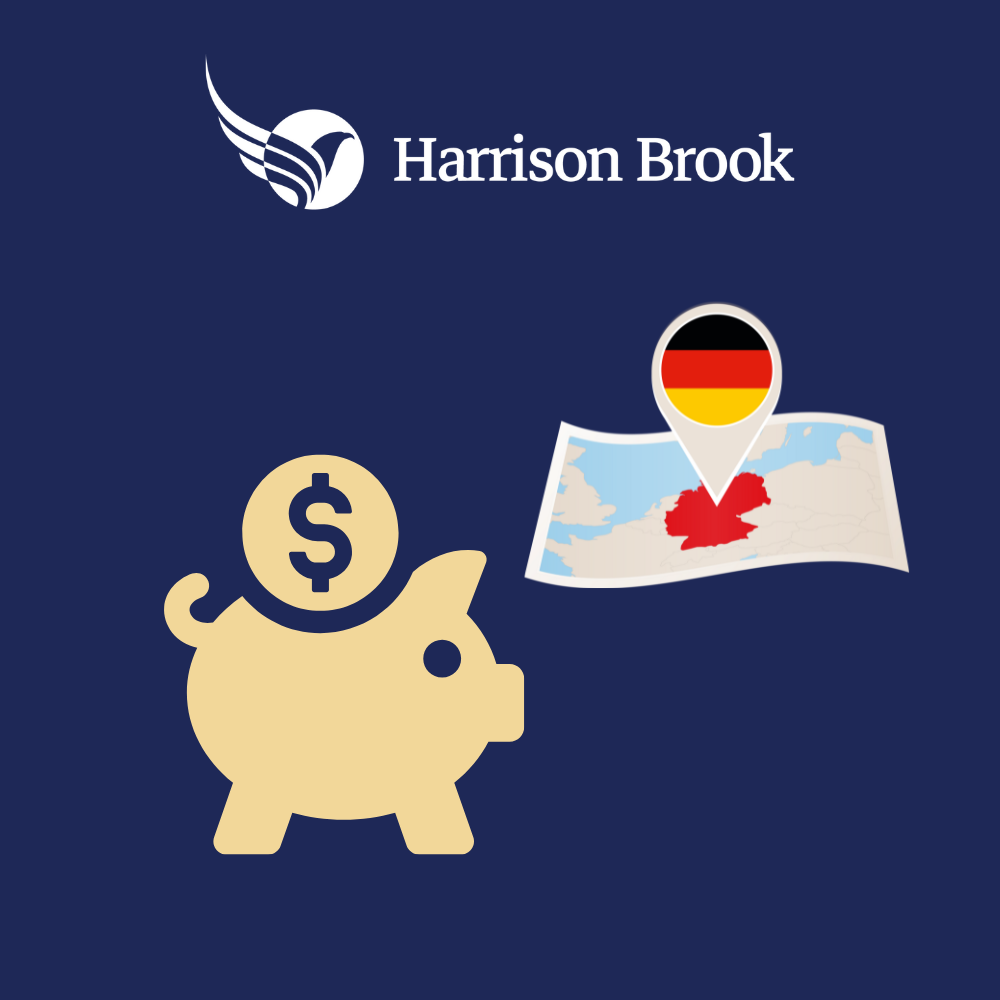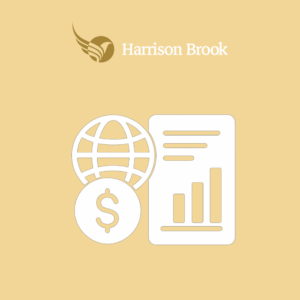
Relocating to Germany is a bold and rewarding move, but as a US expat, you may be left wondering what happens to your retirement savings—especially your 401(k). US expats face unique challenges when it comes to managing 401(k) accounts from abroad, including legal and tax implications that differ from those faced by residents in the US. Can you still access it? Should you roll it over? What are the tax implications?
Whether you are on a short-term assignment or building a life in Munich or Berlin, understanding how to manage your 401(k) from Germany is essential for protecting your retirement and avoiding costly mistakes. As a US citizen, you have ongoing tax obligations on your worldwide income, including your 401(k), regardless of where you live.
Introduction to 401(k) Plans
A 401(k) plan is a powerful tool for building retirement savings, especially for U.S. employees looking to secure their financial future. As a qualified retirement account, a 401(k) allows you to set aside a portion of your salary before income tax is applied, which means your taxable income is reduced and you benefit from significant tax savings each year. These plans are typically offered by employers and provide a variety of investment options, such as mutual funds, to help your retirement funds grow tax-deferred until you’re ready to withdraw them.
For U.S. expats, understanding the tax implications and tax laws surrounding 401(k) plans is crucial. While your retirement account continues to offer tax advantages in the U.S., living abroad can introduce new tax considerations and reporting requirements. Knowing how your 401(k) fits into your overall retirement strategy—and how it interacts with both U.S. and foreign tax laws—will help you make informed decisions and maximize your retirement savings.
Can You Keep Your 401(k) While Living in Germany?
Yes, you can. If your 401(k) is with a former employer in the U.S., you are not required to close the account just because you moved abroad. The account remains in the U.S., and you can continue managing the investments online.
However, there are limitations:
- You cannot make new contributions unless you are still on a U.S. payroll
- Accessing your funds early may trigger taxes and penalties
- Rolling over the account into another plan might make sense depending on your situation
Contribution Limits and Rules
When it comes to maximizing your retirement savings, it’s essential to stay within the annual contribution limits set by the IRS for 401(k) plans. For 2024, you can contribute up to $22,500 to your 401(k), and if you’re age 50 or older, you’re eligible for catch-up contributions, raising your total limit to $30,000. These limits apply across all your 401(k) and other retirement savings options, including IRAs, so it’s important to track your contributions carefully.
Exceeding these annual contribution limits can result in unwanted tax liabilities and penalties, so U.S. expats should pay close attention to the rules. Additionally, understanding the tax treatment of both contributions and withdrawals is key to minimizing your tax burden and maximizing the growth of your retirement funds. Staying informed about the latest IRS guidelines and coordinating your contributions across different retirement savings options will help you avoid costly mistakes and keep your retirement plan on track.
Employer Contributions and Matches
One of the standout features of many 401(k) plans is the employer contribution, often referred to as an employer match. This is essentially extra money your employer adds to your retirement account, boosting your retirement savings at no additional cost to you. For example, a common arrangement is for an employer to match 50% of your contributions up to 6% of your salary—meaning if you contribute 6%, your employer adds another 3%.
It’s important for U.S. expats to review their employer’s matching policy and understand any vesting schedules, which determine when you fully own the employer contributions. Taking full advantage of employer contributions can significantly increase your retirement funds and help you meet your long-term financial goals. Don’t leave this benefit on the table—maximizing employer contributions is a smart way to grow your 401(k) while managing your tax obligations effectively.
Earned Income and 401(k) Plans
Eligibility to contribute to a 401(k) plan hinges on having earned income from your employer, such as wages, salaries, or tips. Investment income, like dividends or interest, doesn’t count toward this requirement. For U.S. expats working abroad, it’s crucial to understand how earned income affects your ability to contribute to a 401(k).
If you’re earning a salary from a U.S. employer while living in Germany, you may still be able to contribute to your 401(k) plan. However, the foreign earned income exclusion can impact your tax liabilities and the amount of income eligible for retirement savings. Navigating these tax implications is essential to avoid penalties and ensure you’re making the most of your 401(k) contributions. Always consider how your earned income and the foreign earned income exclusion interact with your retirement strategy to optimize your tax savings and retirement funds.
What Are Your Retirement Savings Options for Managing a 401(k) Abroad?
Expats have several retirement plans to consider when managing their 401(k) from abroad. Here are three of the most common strategies:
1. Leave It Where It Is
This is the simplest option. Your funds continue growing tax-deferred in the 401(k) plan, which is a type of workplace plan, and you retain access to existing investment choices. Leaving your funds in a workplace plan may be beneficial if it offers low fees and strong investment options.
However, many U.S. providers become restrictive once they detect a foreign mailing address. Some may freeze your ability to make changes or require additional documentation to comply with U.S. regulations like FATCA.
2. Roll It into an IRA
Many expats choose to roll over their 401(k) into an Individual Retirement Account (IRA), which offers more flexibility in investment options and often lower costs. An IRA account can provide more flexibility and control for expats, especially when managing retirement funds from abroad. There are different types of IRA accounts, such as traditional IRA and Roth IRAs, each with their own tax implications and withdrawal rules. The rollover process typically involves transferring funds from your 401(k) to your chosen IRA account, which may include steps like initiating a direct rollover, selecting the type of IRA, and ensuring compliance with IRS regulations. When transferring funds, it’s important to understand the tax implications and reporting requirements, especially for expats. This is especially useful if:
- You want more control over your asset allocation
- You plan to consolidate multiple retirement accounts
- You want access to an expat-friendly advisor
Make sure the new IRA custodian allows for overseas account holders. Not all do.
3. Withdraw or Distribute Funds
You can start withdrawals penalty-free at age 59.5, but it’s important to understand the withdrawal rules for 401(k) accounts. If you take funds out before age 59.5, you may face an early withdrawal penalty in addition to owing regular income tax on the amount withdrawn in the U.S. Withdrawals are considered taxable income in the U.S. and may also be taxable in Germany, depending on how the U.S.-Germany tax treaty is applied. You can choose to take distributions as a lump sum or as periodic payments, but taking a lump sum may have significant tax implications and could affect your long-term retirement planning.
Tax Implications When Managing a 401(k) from Germany
This is where things get tricky. The intersection of U.S. and German tax law can catch many expats off guard.
- In the U.S.: Withdrawals are taxed as ordinary income. Required Minimum Distributions (RMDs) begin at age 73. You must report 401(k) withdrawals and rollovers on your U.S. tax return, and proper reporting is essential to avoid penalties. In some cases, you may be able to reclaim taxes paid on certain distributions or rollovers by reporting them on your tax return. Be aware that transferring or converting retirement funds—especially in the case of Roth conversions—can trigger immediate tax liabilities, so understanding these consequences beforehand is crucial. U.S. citizens living abroad can use foreign tax credits (claimed on IRS Form 1116) to avoid double taxation on retirement income.
- In Germany: The tax treatment depends on your residency and how the withdrawal is classified. In many cases, withdrawals are also taxed as income. Local tax laws in Germany can affect the taxation of your 401(k) withdrawals and should be carefully considered.
To avoid double taxation, you must claim treaty benefits and coordinate filings in both countries. Working with a tax-aware financial adviser is key here.
Should You Convert to a Roth IRA?
Roth conversions can be a useful strategy if you expect to be in a higher tax bracket later or want to reduce future RMDs. One of the main advantages of Roth IRAs is that qualified withdrawals are tax free. Roth IRAs also allow your investments to grow tax free, providing significant tax benefits over time. The tax free growth of Roth IRAs can be especially valuable for long-term retirement planning. Overall, converting to a Roth IRA offers substantial tax benefits, but the process can be complex for expats in Germany. However, doing this from Germany requires careful planning:
- The conversion itself is taxable in the U.S.
- Germany may not recognize Roth accounts as tax-exempt
- Timing and local tax rules can affect the net benefit
You should never initiate a Roth conversion while living abroad without professional advice.
Currency and Investment Risk
One factor that often gets overlooked is currency risk. Your 401(k) is denominated in U.S. dollars, while your expenses in Germany are likely in euros. A strong dollar works in your favor, but currency swings can reduce the real value of your withdrawals. Before making decisions about currency exposure and investment risk, it’s important to assess your overall financial situation to ensure your strategy aligns with your needs.
A financial advisor can help you manage this exposure by:
- Diversifying across global assets
- Using FX hedging strategies if appropriate
- Aligning your withdrawals with currency needs
Managing currency risk and diversifying your investments can help ensure long-term financial stability for expats.
Common Mistakes to Avoid
Managing a 401(k) from abroad comes with unique challenges, and avoiding common mistakes can make a big difference in your retirement savings and tax obligations. One frequent error is not contributing enough to take full advantage of employer matching—missing out on this “free money” can mean leaving significant retirement funds on the table. Another pitfall is failing to diversify your investments, which can expose your retirement account to unnecessary risk.
U.S. expats should also be cautious about the tax implications of early withdrawals, as these can trigger substantial tax liabilities and penalties. Mixing rollover funds with regular contributions can inadvertently lead to contribution limit violations, complicating your tax situation. To avoid double taxation and ensure compliance with both U.S. and German tax laws, it’s wise to consult with a financial advisor who understands cross-border retirement planning. By steering clear of these common mistakes, you can maximize your tax savings, protect your financial future, and make the most of your 401(k) while living abroad.
FAQs – Managing Your 401(k) from Germany
Can I still manage my 401(k) online from Germany? Yes. Most platforms allow online management, but as a US expat, you may face unique challenges in managing your 401(k) online. Some U.S. providers may restrict foreign logins or freeze trading access due to compliance concerns.
Is my 401(k) taxed in Germany when I withdraw? It can be. Germany may tax your distributions depending on how they are classified. Payout structures in Germany may differ from those in the US, affecting how retirement income is received. This is a complex area that benefits from treaty-aware tax planning.
Can I roll my 401(k) into a German pension? No. U.S. retirement accounts cannot be rolled into a foreign retirement plan. However, you may have access to workplace retirement plans offered by a foreign employer. When working for a foreign employer, expats contribute to retirement savings through alternative options such as IRAs or local workplace retirement plans. German pension pots are built differently than US 401(k)s, so understanding these differences is important for effective retirement planning. Your best option is usually a rollover into an IRA or maintaining the 401(k) in the U.S.
Do I need to report my 401(k) on FBAR or FATCA forms? No. Since your 401(k) is with a U.S. institution, it does not need to be reported on FBAR or FATCA forms, unless you hold foreign financial assets separately.
Will I pay U.S. taxes on my 401(k) forever? As a U.S. citizen, yes. You are taxed on worldwide income regardless of where you live. That includes retirement income, unless you renounce citizenship.
Why Work with Harrison Brook?
At Harrison Brook, we specialize in helping Americans living abroad take control of their financial future. Our team understands the challenges of managing retirement accounts, investments, and tax planning from Germany.
We offer:
- Transparent, fee-based advice
- Cross-border retirement planning
- Investment strategies tailored for expats
- Trusted network of experts for U.S. and German tax coordination
📞 Book your free financial consultation today
We will help you make the most of your 401(k) and every other piece of your financial puzzle—wherever in the world you live.



